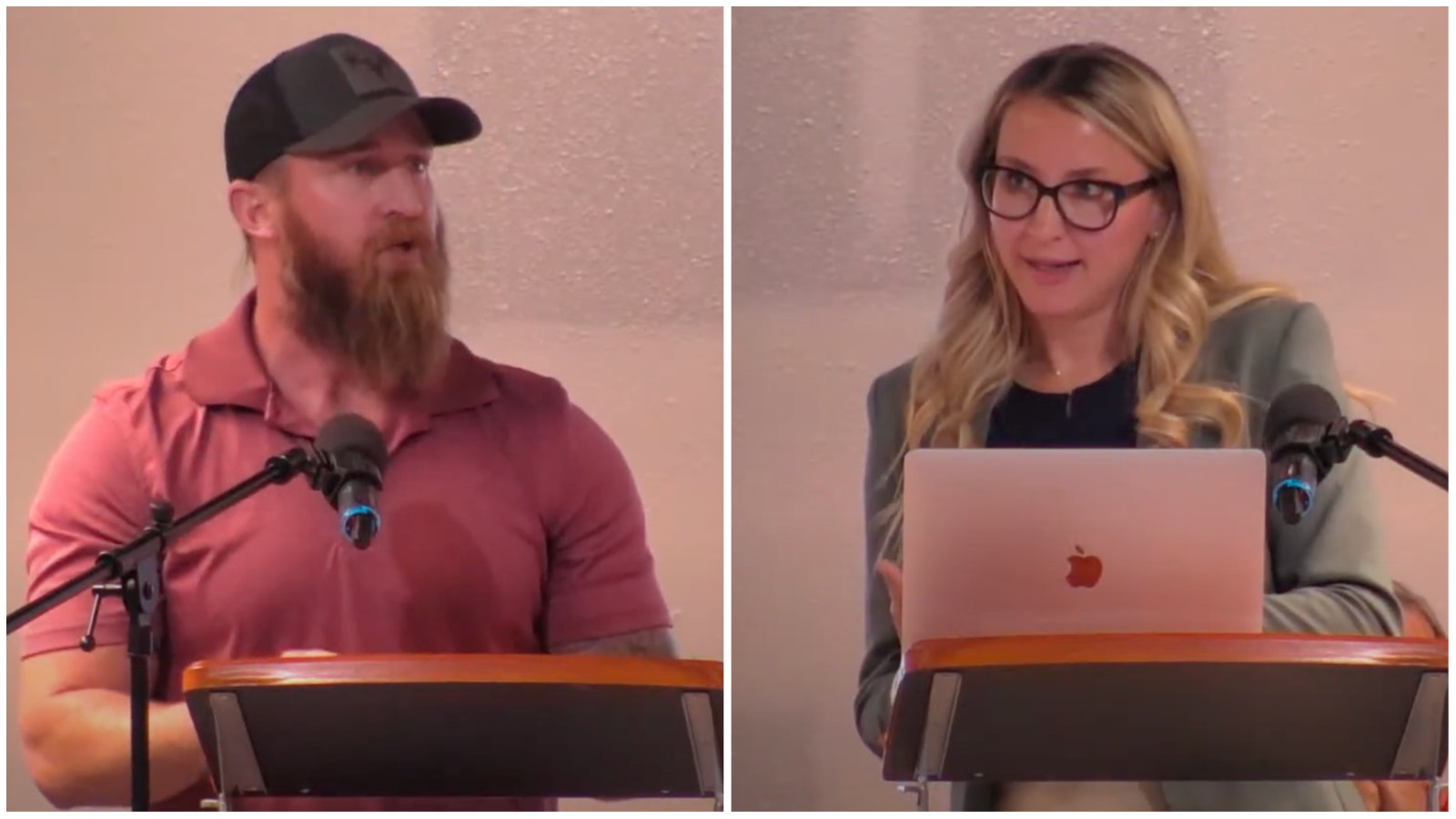A Wyoming school board on Monday defended its teachers’ ability to hide students’ transgender identities from parents, if the school believes student safety is in question.
The school board’s attorney also told the public that it is sexual harassment for a teacher or staff member to “misgender” students.
The board for Sweetwater County School District No. 1 at a regular meeting on Monday featured a presentation by its attorney, Kari Moneyhun, regarding current case law on transgender issues in schools.
“We know it’s well settled that misgendering an employee or a student is sexual harassment,” said Moneyhun during her presentation at the public meeting.
“Misgendering” is the act of calling someone by pronouns or a name that doesn’t fit their preferred gender.
Moneyhun said that misgendering a student is considered sexual harassment because the U.S. Department of Education now interprets Title IX, a federal civil rights law governing schools, as protecting gay and transgender people from discrimination.
The U.S. Department of Education’s new interpretation of Title IX has been temporarily paused in 20 states, not including Wyoming, by a federal court in the Eastern District of Tennessee. The court is contemplating whether the education department’s new interpretation of Title IX is legal.
Moneyhun did not mention the preliminary injunction in her presentation. She did not return a phone call from Cowboy State Daily Wednesday morning requesting additional comment.
‘Following The Law’
A second prevalent issue in schools’ lawsuits nationwide is whether teachers should or should not discuss a student’s transgender behavior with the student’s parents, said Moneyhun. She said she considered this area of law “a little less settled,” because it’s a balancing act between parents’ rights to parent their children, and children’s right to “safety.”
There are cases in which teachers suing school districts in other states have pushed back on nondisclosure policies, saying their religious beliefs forbid them from lying, said Moneyhun.
She said recent court ruling has held that the school should try to accommodate the teacher’s religious beliefs in that instance, but the school can fire the teacher if it’s impossible to accommodate his or her religious beliefs under the expanded federal law.
Susan Eggebraten, a retired teacher who spoke at the meeting, did not agree with this policy.
“If… the district or board is demanding a teacher violate their religious rights in calling someone something they’re not – or their conscience – that would be a constitutional violation of their rights,” said Eggebraten. “Just bringing that to your attention.”
Carol Jelaco, chair of the Sweetwater County School Board, sparred verbally with Eggebraten during the meeting.
“It’s an evolving law,” said Jelaco. “So we’re committed to following the law.”
Eggebraten asked multiple times what the district’s policy is, specifically, with respect to communicating students’ gender dysphoria with their parents, and with respect to pronoun usage, and bathroom and sports access.
“It’s a case-by-case basis,” said Jelaco.
“I would consider it a violation of my freedom of speech, personally… if I was forced to lie or speak a pronoun that was not in accordance with the biological (situation),” said Eggebraten.
Jelaco countered again, saying “When you’re hired to fill a public school position you follow the laws of that institution and the federal law.”
Student Safety
Moneyhun said that Wyoming’s parental rights law does not specifically list education as an area where parents exercise authority over their children. She also said the Wyoming Supreme Court places children’s interests over parents’ where child safety – “physical or mental” – is concerned.
Eggebraten said it’s unwise for the school board to get in the habit of thinking of children’s parents as generally dangerous to children, though she also acknowledged that there can be exceptions.
Jelaco said that if the school district believes the student could be harmed by his or her parents due to transgender behavior “from my interpretation the district is bound to keep the student’s – shall we say – whatever the student wants is paramount.”
‘Come Out’
Eggebraten asked whether the school district has been keeping transgender behavior a secret from parents.
Both Jelaco and Kelly McGovern, district superintendent, said multiple times that those decisions are handled “on a case-by-case basis.”
A parent identified as “Shawn” told the board that his daughter’s decision to “come out” as a transgender person was kept secret from him by the school, and the secrecy did more harm than good. The parent said the child became combative at home and had psychological difficulty.
He asked the board if, since school staff will keep transgender behavior a secret from parents, the school district will pay for outside counselors to help those students.
McGovern advised Jelaco not to speak publicly on the issue, saying there were confidentiality issues.
The school district is developing new policy in line with emerging federal Title IX interpretations, according to Moneyhun. The new policy should be official by next year.
“The district’s policy has always been to adhere to the law,” said Moneyhun. “Title IX is a federal law, a civil rights law.”





